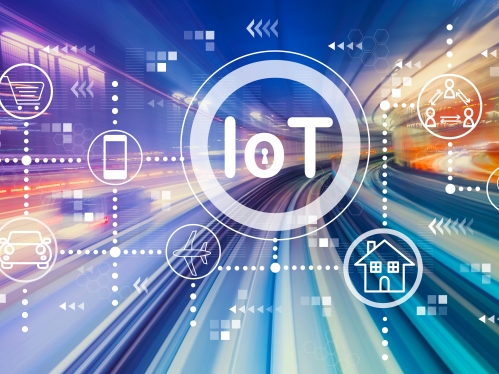Electrical & Computer Engineering Research
Areas of Focus
The Department of Electrical and Computer Engineering conducts research across an array of focused areas that encompass the field of electrical and computer engineering. Our faculty members represent a richness of talent, curiosity, and vision. Students are active participants in exciting discovery and innovation.
Communications and Networking
Wireless communications, information theory, sensor networks, green networks, next generation internet architectures, dynamic spectrum access, cooperative approaches, cognitive radio, resource management, information theory, information security, physical layer security, network coding, underwater communications.
Affiliated Faculty: Aggelos Bletsas, Yingying Chen, Sasan Haghani, Shirin Jalali, Narayan Mandayam, Jorge Ortiz, Athina Petropulu, Dario Pompili, Dipankar Raychaudhuri, Anand D. Sarwate, Ivan Seskar, Emina Soljanin, Wade Trappe, Chung-Tse Michael Wu, Bo Yuan, Minning Zhu

Signals and Information Processing
Signal processing, multimedia, speech and image processing, MIMO radar, compressive sensing, visual computing, cyberphysical systems, control theory, data visualization, machine learning, distributed computing.
Affiliated Faculty: Waheed U. Bajwa, Aggelos Bletsas, Sasam Haghani, Shirin Jalali, Laleh Najafizadeh, Athina Petropulu, Dario Pompili, Salim El Rouayheb, Anand D. Sarwate, Emina Soljanin, Predrag Spasojevic, Bo Yuan, Minning Zhu

Machine Learning
The Machine Learning area focuses on the development of intelligent algorithms and agents that enable computers to perform specific tasks without using explicit instructions, relying instead on patterns and knowledge extracted from data. It allows systems to learn and improve from experience automatically, facilitating applications ranging from predictive analytics and natural language processing to image recognition and beyond. ECE faculty members in this area focus on the theory, algorithm, system, hardware, security and applications of machine learning.
Affiliated Faculty: Waheed U. Bajwa, Aggelos Bletsas, Yingying Chen, Kristin Dana, Shirin Jalali, Bokyung Kim, Demetrios Lambropoulos, Hang Liu, Laleh Najafizadeh, Jorge Ortiz, Athina Petropulu, Dario Pompili, Anand D. Sarwate, Ivan Seskar, Bo Yuan, Zhao Zhang, Minning Zhu
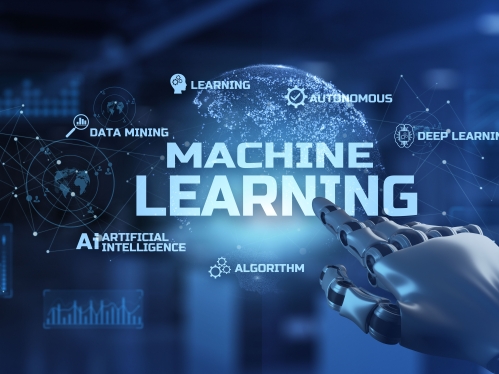
Cybersecurity
Cybersecurity targets the emerging threats in modern computing infrastructures, electronic devices, and user applications. ECE faculty in this area focus on addressing various confidentiality and integrity issues across multiple levels of computer system stack, such as AI security, information security, mobile system security, hardware security, usable security, and data privacy.
Affiliated Faculty: Yingying Chen, Bokyung Kim, Demetrios Lambropoulos, Salim El Rouayheb, Anand D. Sarwate, Emina Soljanin, Sheng Wei, Bo Yuan

High-Performance Computing
The High-Performance Computing area focuses on developing massively parallel algorithms and advanced systems with heterogeneous architectures to perform complex computations at high speed, far beyond what standard computers can achieve. ECE faculty in this area focus on workflow management and scheduling, artificial intelligence, climate modeling, quantum physics, and data mining.
Affiliated Faculty: Shantenu Jha, Bokyung Kim, Hang Liu, Dov Kruger, Emina Soljanin, Matteo Turilli, Zhao Zhang

BioElectrical Engineering
ECE research in Bio-Electrical Engineering combines principles of electrical engineering with biomedical sciences to understand the human body and its impact on environment in the areas of healthcare, life sciences, disease diagnostics, and climate change. ECE faculty in this area specializes in biosensor development, bio micro/nano technology, bio-computation, neural engineering, biomedical imaging and bioinstrumentation.
Affiliated Faculty: Sasan Haghani, Umer Hassan, Mehdi Javanmard, Bokyung Kim, Laleh Najafizadeh, Dario Pompili, Chung-Tse Michael Wu, Minning Zhu
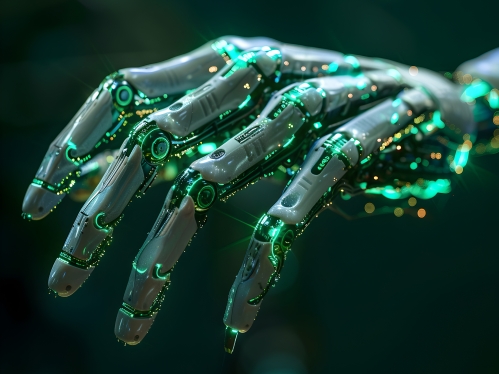
Software Engineering
Software Engineering research addresses the design, development, and testing of software applications. ECE faculty in this area focus on middleware for scientific computing, collaborative systems, distributed and web programming, and algorithm design and optimization.
Affiliated Faculty: Shantenu Jha, Dov Kruger, Demetrios Lambropoulos, Ivan Marsic, Ivan Seskar, Deborah Silver, Maria Striki

Electronic Devices, Circuits and Systems
Affiliated Faculty: Umer Hassan, Mehdi Javanmard, Bokyung Kim, Shriram Ramanathan, Chung-Tse Michael Wu, Minning Zhu
Robotics
The Robotics area is a multidisciplinary field that integrates computer science, engineering, and technology to design, construct, deploy, operate, and apply robots, aiming to replicate human actions or assist in tasks across various environments. ECE faculty in this area specializes in the development of AI algorithms, control systems, and sensory feedback mechanisms to enable robots to perceive their environment, make decisions, and perform complex tasks autonomously or semi-autonomously.
Affiliated Faculty: Daniel Burbano Lombano, Kristin Dana, Jorge Ortiz, Dario Pompili, Bo Yuan
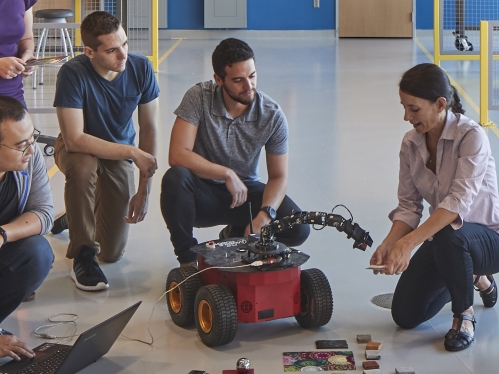
Systems and Control
The Systems and Controls area focuses on designing, analyzing, and optimizing dynamic systems to achieve desired behaviors, spanning a wide range of subjects from control theory to complex systems like cyber-physical systems, robot swarms, and the Internet. Faculty members in this area also investigate integrating data-driven tools to develop intelligent systems capable of autonomous decision-making and adapting seamlessly to dynamic and uncertain environments.
Affiliated Faculty: Daniel Burbano Lombano, Zoran Gajic, John J. McGarvey, Guosong Yang
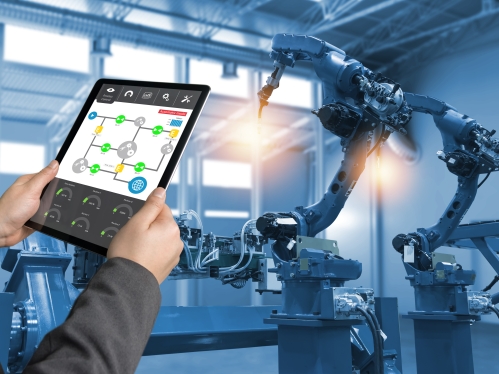
Computer Vision and Multimedia
Computer Vision and Multimedia research generates, interprets, and delivers images and videos to enable human-centric system applications. ECE faculty in this area focus on computer vision, robotics, multimedia systems, virtual reality, and augmented reality.
Affiliated Faculty: Kristin Dana, Yao Liu, Ivan Marsic, Sheng Wei, Bo Yuan, Yuqian Zhang
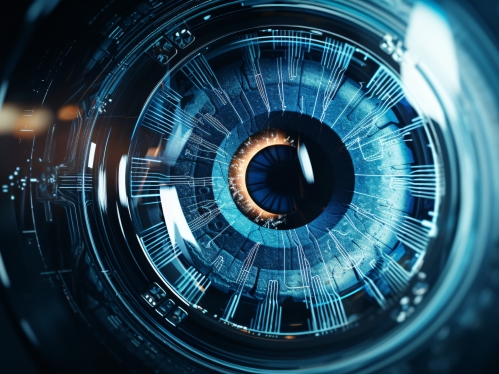
Internet-of-Things and Smart Health
Internet-of-Things and Smart Health brings together network-connected werable devices with sensing and computing capabilities to enable healthcare applications. ECE faculty in this area focus on mobile computing and sensing, Internet-of-Things, smart healthcare, biosensing, and cyber physical systems.
Affiliated Faculty: Yingying Chen, Sasan Haghani, Umer Hassan, Mehdi Javanmard, Bokyung Kim, Dov Kruger, Laleh Najafizadeh, Dario Pompili, Minning Zhu
